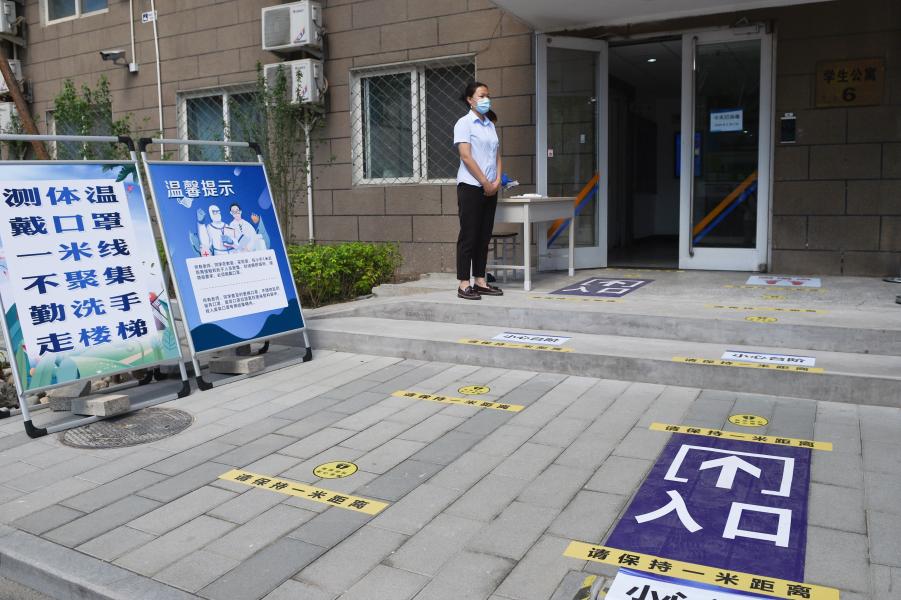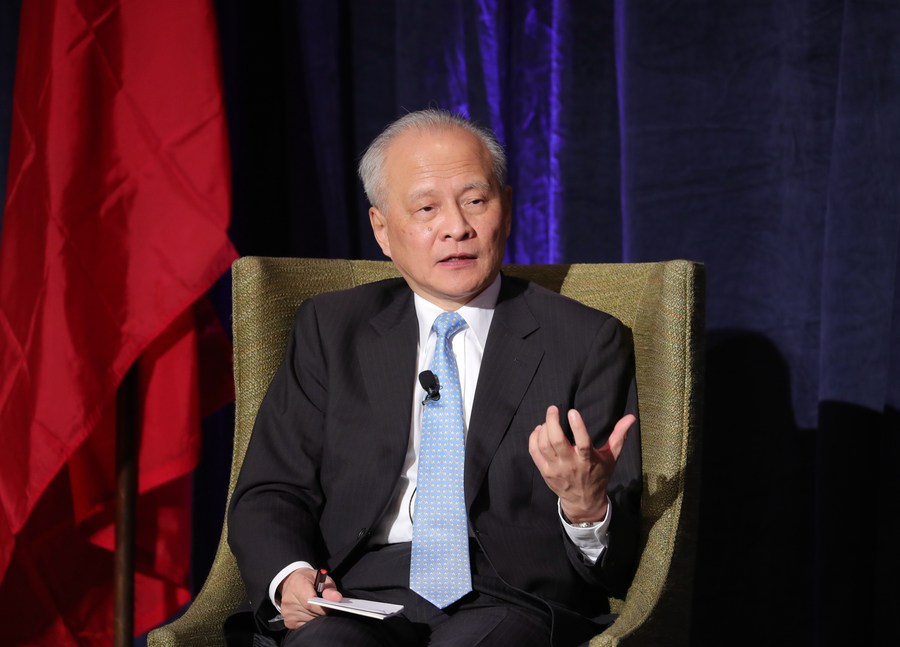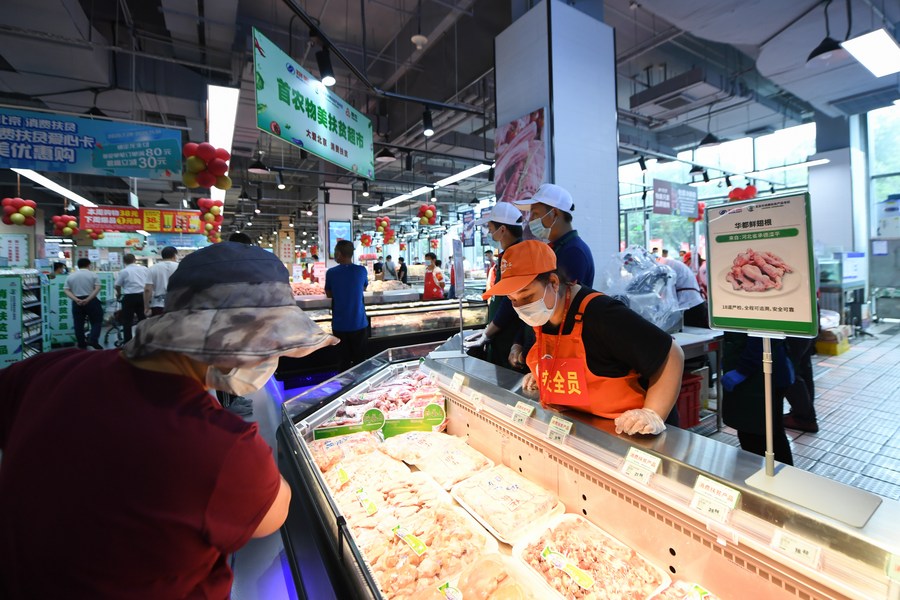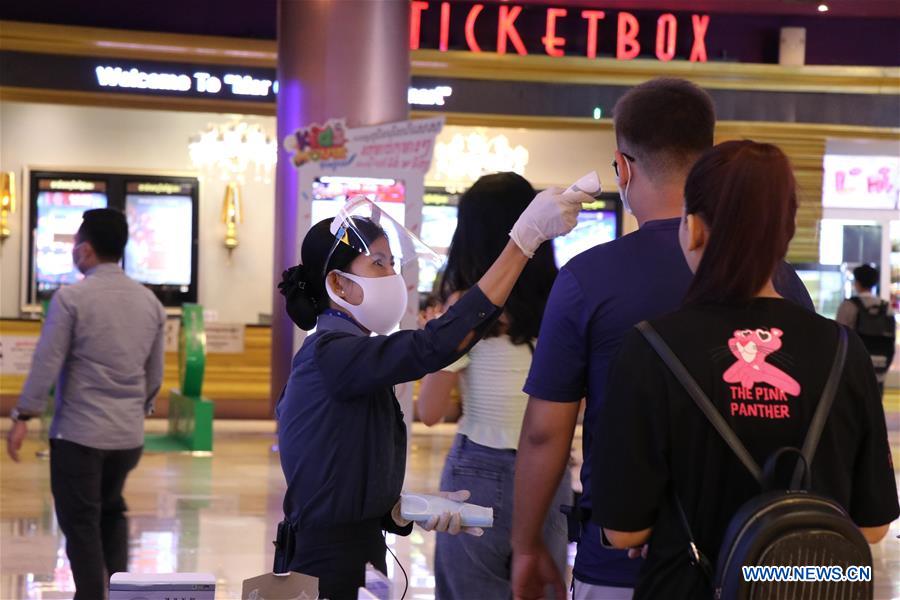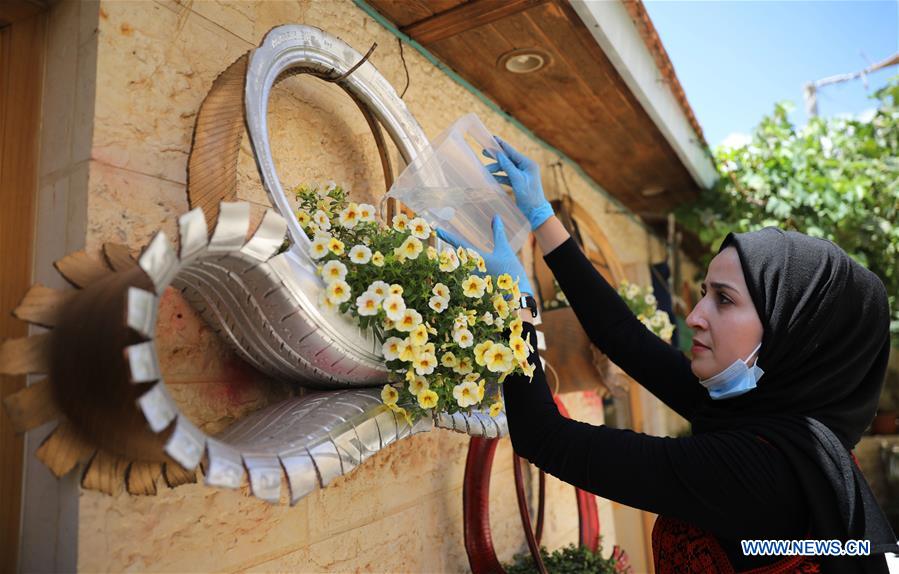--Universities and colleges in Beijing are allowed to open campuses for new student registration as early as Aug. 15.
--With cinemas now open and domestic tourism rebounding, Beijing has maintained an anti-epidemic "new normal" with targeted COVID-19 prevention and control measures to ensure normal life and social order.
--Extracurricular training institutions can submit applications for resuming offline classes and activities.
by Xinhua writers Fang Ning, Qiang Lijing, Luo Xin and Xie Hao
The Beijing municipal authority has issued a breakdown of school opening schedules for the coming fall semester, which staggers the school opening peak to reduce COVID-19 control pressure on campuses.
Instead of the standard fall semester opening on Sept. 1, universities and colleges in the capital are allowed to open campuses for new student registration as early as Aug. 15, according to a notice issued by the municipal leading group office for epidemic prevention and control on Saturday.
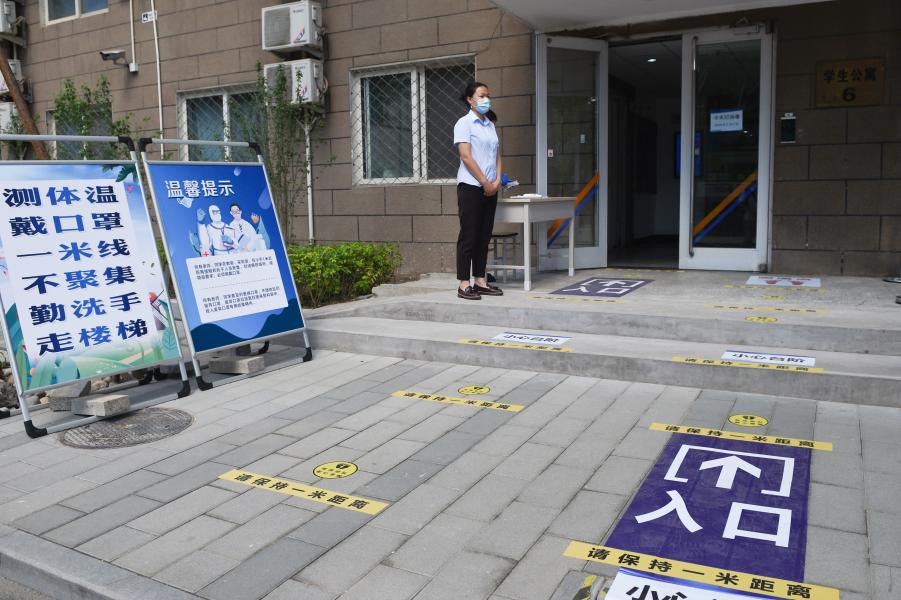
A staff member is on duty at the entrance of a dormitory in Beijing University of Chemical Technology in Beijing, capital of China, May 27, 2020. (Xinhua/Ju Huanzong)
Since June 11, Beijing has reported 335 confirmed COVID-19 cases linked to a cluster of infections in the Xinfadi wholesale market. By Aug. 6, all of the patients had recovered and been discharged from the hospital. No new cross infections have been reported in the city.
ANTI-EPIDEMIC "NEW NORMAL"
With cinemas now open and domestic tourism rebounding, Beijing has maintained an anti-epidemic "new normal" with targeted COVID-19 prevention and control measures to ensure normal life and social order.
The city, with 93 colleges and universities, leads Chinese metropoles in the number of higher-learning institutions. Campuses are some of the city's most densely-populated places.
Chen Baojian, vice president of Peking University, said in coping with COVID-19 prevention, the university has introduced big data and artificial intelligence to build a digital personnel management mechanism.
"For example, canteens are high-risk areas. In the new semester, we will introduce a 'dining index' to timely inform teachers and students of the real-time number of diners in each canteen to prevent crowding," Chen said.
Xu Haijun, who is in charge of COVID-19 prevention and control work at the Beijing University of Chemical Technology, said that when students return, they will each receive a kit that will include a thermometer, face masks, and disinfectant supplies.
According to the notice, all teachers, students, and staff from low-risk areas must present a green health code to be able to return to school. Those from medium-risk areas shall observe the 14-day quarantine rule and take nucleic acid tests before returning to campuses.

